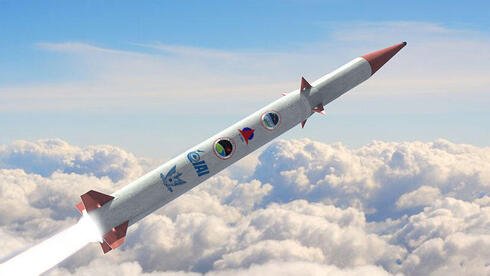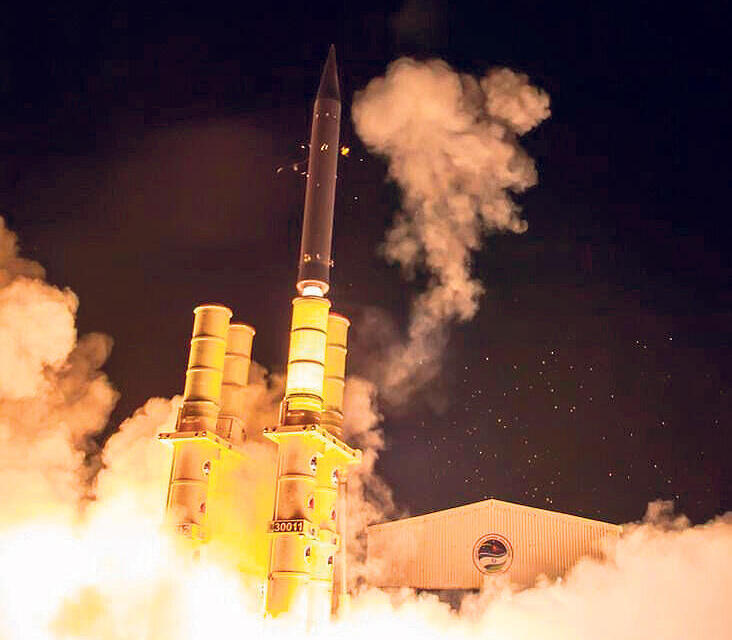Israel’s arms industry profits soar as wars fuel billion-dollar contracts

Months after Prime Minister Benjamin Netanyahu declared that Israel was “one step away from total victory” over Hamas, the IDF remains on high alert for a potential flare-up with Hezbollah and Iran. This past weekend was no exception. Israel is in a critical phase, balancing the decision between securing a deal that could save the lives of hostages and facing a potential loss of control that could escalate into a regional war. Meanwhile, the defense industries, which have been operating in an unprecedented emergency mode since the beginning of the war in October, continue their round-the-clock production efforts. This urgency is driven by the acute global shortage of armaments, fears of an arms embargo on Israel, and scenarios that could lead to an expansion of the conflict.
The surge of orders flooding Elbit Systems due to ongoing conflicts in Israel and Ukraine highlights the fortune it acquired with the purchase of IMI Systems from the state at the end of 2018. Elbit is now working around the clock, supplying the IDF with tank shells, artillery, mortar bombs, and various other armaments. At the same time, billions of dollars are being funneled into the company. In the second quarter, Elbit increased its revenues by 12%, reaching $1.162 billion, with a record backlog of $21 billion. In just the past few months, the Ministry of Defense awarded Elbit contracts totaling approximately 4.5 billion shekels for relatively simple armaments.
Elbit recognized the potential in the industrial sector early on and aggressively pursued the acquisition of IMI despite a lengthy and complex privatization process. This determination paid off, as evidenced by the many orders now directed to its production lines, proving the deal was fruitful. Russia’s invasion of Ukraine two years ago sparked an arms race in Europe, leading to a wave of orders, many leveraging IMI’s developments and expertise. The Netherlands, for instance, purchased precision rockets worth 1.1 billion shekels, and the Danish army recently ordered rockets and cannons valued at about $260 million. A week and a half ago, Elbit announced another rocket order from an unspecified country, worth $270 million. Additionally, at the end of last month, the Ministry of Defense placed an order with Elbit for mortar bombs valued at approximately $190 million.
The Israel Aerospace Industries (IAI) also reported strong performances in the second quarter and first half of the year, with a record $22.2 billion in its order backlog. The company saw a 12% increase in sales compared to the same period last year, with revenues reaching $2.85 billion and an 80% jump in net profit to $296 million, compared to the first half of 2023.
Despite these impressive figures, the planned IPO of minority shares in IAI has yet to be realized, even though the government has approved it. IAI and the Government Companies Authority hope that the current conflict might create the right conditions to move forward with the IPO. However, strong opposition from the security establishment, particularly the division responsible for safeguarding the state’s critical secrets within the Ministry of Defense, has stalled the process.
IAI is the developer and manufacturer of the Arrow 2 and Arrow 3 anti-missile systems, which have played a central role in intercepting ballistic missiles launched at Israel from Yemen and Iran since the war began. The company also produces the new Barak MX defense missiles used on Navy ships to protect gas rigs in the Mediterranean Sea.
At the end of last week, IAI announced another significant deal worth NIS 2 billion, and just over a week ago, it reported a massive $2 billion contract to supply a weapon system to a foreign customer, speculated to be an air defense system. Last month, IAI confirmed the commencement of another deal, valued at approximately $1 billion, which, according to foreign reports, involves the sale of a spy satellite for the Moroccan army.
3. Production independence
Amidst the challenges of the ongoing war, “production independence” has become a mantra within the Ministry of Defense and the Procurement Administration. The arms crisis with the U.S., marked by delays in some bomb shipments Israel ordered, has forced the Ministry of Defense to seek local solutions. These efforts include opening production lines that bypass U.S. President Joe Biden’s restrictions and anticipating future constraints that might be imposed by his successor. According to IAI CEO Boaz Levy, “Besides objective constraints related to global supply chains, there are cases where countries halt processes with Israeli companies, so we produce the components that are considered critical ourselves.”
IAI and Elbit have historically been export-oriented companies, but the current conflict has prompted a noticeable shift towards expanding sales in the local market. In the second quarter of 2024, IAI’s sales to the Ministry of Defense accounted for more than 33% of its total sales, amounting to $444 million, compared to about 27% before the war. Similarly, Elbit’s sales to the Israeli market reached $896 million in the first half of the year, constituting 28.2% of its total revenues—an almost 80% increase compared to the same period last year.
4. On the horizon: UAV interception
It appears that both Elbit and IAI are still poised for further growth, and later this month, Rafael will also release its second-quarter results. Rafael’s first-quarter sales grew by 31% to nearly NIS 4 billion compared to the same quarter last year, with an 83% increase in net profit to NIS 232 million.
Depending on the outcome of negotiations between Israel and Hamas, and whether the war in Gaza and on the northern border escalates into a full-scale regional conflict, the defense companies’ production lines will likely remain in high gear for the foreseeable future. Weapons not immediately deployed to active fronts will be stored in IDF emergency reserves, while surplus production will be directed to other countries in need of armaments. This includes air defense missiles from IAI and Rafael, pilot helmets produced by Elbit, and armored vehicles by Plasan from Kibbutz Sasa, which is operating around the clock despite Hezbollah’s recent release of footage showing anti-tank missiles hitting a factory on the northern border.
Based on the special $14 billion aid package from Biden, Rafael will accelerate the production rates of the David’s Sling and Iron Dome air defense systems, as well as the development of the “Iron Beam” laser defense system, which is expected to become operational within a year. IAI will increase production rates of the Arrow and Barak missiles, and government-owned Tomer has already expanded its infrastructure with a significant investment to boost the production of engines for these missiles.
Last week, U.S. Secretary of State Antony Blinken approved an arms deal worth more than $20 billion, under which Israel will be able to purchase 50 state-of-the-art F-15 AI aircraft over the coming years. Meanwhile, a covert race is underway among major defense industries to develop better responses to UAVs, given the challenges facing air defense systems in countering them. According to IAI’s Boaz Levy, the company is soon to present a unique development to the Ministry of Defense, involving all of its divisions. “We know how to produce systems that can intercept missiles in space, so we are confident in our ability to address the UAV threat effectively.”
Source link





